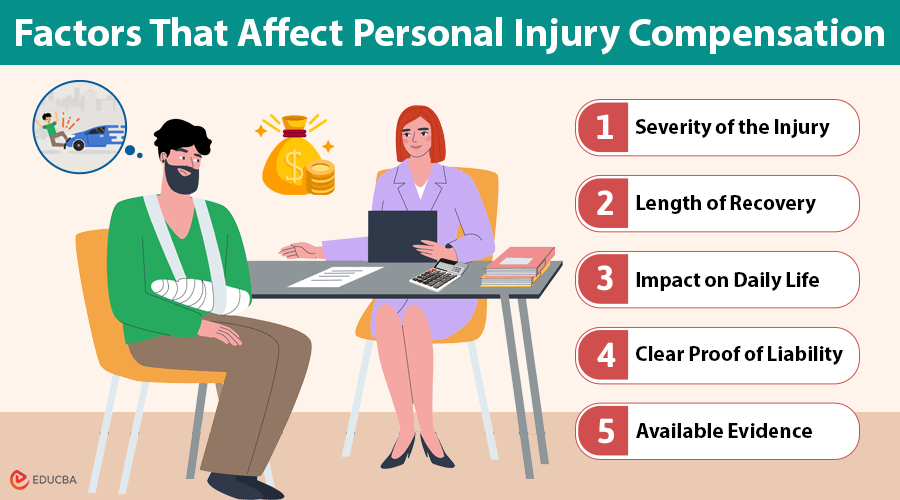Understanding Your Compensation After an Accident
Suffering an injury in an accident can quickly become overwhelming. With mounting medical bills, lost wages, and emotional distress, figuring out your next steps can feel daunting. One of the most essential parts of recovery is understanding how much personal injury compensation you may be entitled to.
Local laws and legal processes can affect your claim if your accident happened in a place like Houston. Understanding how to calculate damages and what factors influence your compensation can significantly impact your claim. Whether it is a car crash, slip and fall, or another type of accident, let us break down what goes into calculating damages and what you need to remember during the process.
Types of Damages in a Personal Injury Case
Damages refer to the money you may receive for your losses after an accident. They fall into two main categories:
1. Economic Damages
These are measurable costs related to your injury, including:
- Medical expenses
- Lost wages
- Future medical treatment
- Property damage
For example, if a car crash injures you, requiring hospital treatment and causing you to miss two weeks of work, these would all count as economic damages in your personal injury compensation claim.
2. Non-Economic Damages
These are more personal and harder to measure. They include:
- Pain and suffering
- Emotional distress
- Loss of enjoyment of life
- Permanent disability or disfigurement
Since non-economic damages do not have a direct price tag, they are calculated differently, often using special formulas.
Why Does Location Matter in Personal Injury Claims?
Laws vary depending on where the accident happens, affecting how much compensation you may receive. The court system, types of claims allowed, and even average payouts differ by location.
For example, if you are in a city like Houston, working with someone who knows the local courts and rules is essential. Local knowledge can give you a major advantage when building your case.
This is why many people turn to a trusted Houston personal injury attorney. They can guide you through the process, explain your options, and help you fight for what you deserve. Having someone on your side who understands both the law and the local system can make your claim stronger from the start.
How Are Personal Injury Damages Calculated?
There is no universal formula, but two common methods used to estimate personal injury claims are:
1. The Multiplier Method
This method adds up economic damages and multiplies them by a number (typically 1.5 to 5), depending on the severity of the injury.
Example:
If your medical bills and lost wages total $20,000, and your injury is severe, the calculation may use a multiplier of 4:
Total damages = $20,000 × 4 = $80,000
2. The Per Diem Method
This method assigns a daily value to your pain and suffering and multiplies it by the number of days you are affected.
Example:
If the daily rate is $200 and you suffer for 100 days, the total would be:
Total compensation = $200 × 100 = $20,000
Factors That Affect Personal Injury Compensation
Not every injury claim is the same. Several factors influence the final payout, including:
- Severity of the Injury: More severe injuries result in higher compensation.
- Length of Recovery: A longer recovery may lead to higher medical costs and lost wages.
- Impact on Daily Life: If your injury affects your ability to work or enjoy life as you did before, your claim value may increase.
- Clear Proof of Liability: If it is clear that the other party was at fault, your case becomes stronger.
- Available Evidence: Medical records, photos, and witness statements help support your claim.
Do You Need a Lawyer for a Personal Injury Claim?
Technically, no, but hiring a lawyer can be a smart decision, especially if your injury is severe or the insurance company is offering a low settlement.
A good personal injury attorney can:
- Negotiate with insurance companies
- Gather and organize evidence
- Work with medical experts
- Represent you in court if needed
Most personal injury attorneys take cases on a contingency fee basis, meaning you only have to pay them if they win. This eliminates financial risk and guarantees that you can seek legal assistance, no matter your financial situation.
Final Thoughts
An accident can turn your life upside down, but personal injury compensation can help you rebuild. While money can not undo what happened, it can ease financial stress and support recovery. Understanding how to calculate damages and the factors that impact your claim strengthens your position to seek fair compensation. With the right knowledge and support, you can work toward the outcome you deserve.
Recommended Articles
We hope this comprehensive guide on personal injury compensation helps you navigate the claims process. Check out these recommended articles for more legal strategies and financial recovery insights.

